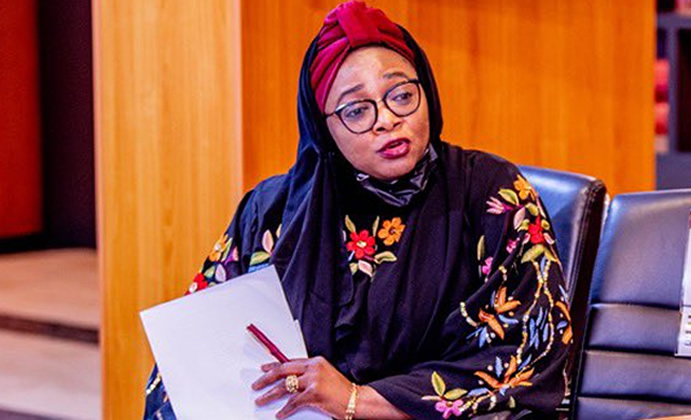The Ministry of Women Affairs has reiterated its dedication to promoting women’s participation in national security, peacebuilding, and governance as Nigeria joins the global community to mark the 25th anniversary of the United Nations Security Council Resolution 1325 (UNSCR 1325) on Women, Peace and Security (WPS).
In a statement issued on Friday, the Minister of Women Affairs and Social Development, Hon. Imaan Sulaiman-Ibrahim, announced that the Third National Action Plan (NAP) has been developed and approved following an inclusive, multi-stakeholder process that involved security institutions, development partners, and civil society groups.
She described the landmark resolution adopted in October 2000 as the moment the world “found a new language for peace,” one rooted in the leadership and resilience of women.
She noted that Nigeria remains one of the pioneering countries in Africa to domesticate the agenda through the development of its National Action Plan (NAP) on Women, Peace and Security, first introduced in 2013 and revised in 2017.
“A National Action Plan is more than policy; it is a living framework that ensures women’s participation, protection and leadership,” she stated.
Sulaiman-Ibrahim announced plans to inaugurate a National Committee in the coming weeks to launch and operationalise the Third NAP, coordinate its implementation, and lead nationwide activities marking the 25-year milestone of UNSCR 1325.
She highlighted major reforms within the security sector, including the elevation of the Directorate of Gender in the Defence Headquarters and the establishment of gender desks across security and paramilitary agencies, initiatives she said have strengthened gender mainstreaming and accountability.
“Nigeria is experiencing historic milestones in women’s leadership across security formations. These include the appointment of Nigeria’s first female Director-General of the Department of State Services (DSS), the emergence of female Comptrollers-General of Immigration, the first female Deputy Comptroller-General of the NSCDC, and the first female spokespersons of both the Nigerian Army and the Nigeria Police Force,” the Minister emphasised.
She added that traditional institutions are also seeing progress, with more women now appointed to traditional cabinets across communities.
“These achievements resonate deeply with the renewed call for the Reserved Seats Bill for Women,” she said, stressing the importance of women’s representation at all levels,” she stated.
According to the minister, Nigeria has surpassed the United Nations 17% benchmark for female participation in peacekeeping operations, achieving 21.2% deployment of female personnel, a development the Minister described as a “tangible commitment to gender equality in action”.
So far, 16 states and 21 Local Government Areas have developed their own Action Plans on Women, Peace and Security. The Ministry will intensify advocacy to ensure more states domesticate the policy,” she added.
The Minister expressed profound appreciation to partners, including UN Women, the Defence Headquarters, security agencies, the governments of the United Kingdom and Norway, civil society organisations and traditional institutions for their support.
She reaffirmed the Ministry’s commitment to advancing women’s leadership as central to peace and development under the Tinubu administration.
“When women lead in peace, nations rise in strength, and when women rise, they lift generations,” she said.
The Third National Action Plan aligns with the Nine Pillars of the Renewed Hope Social Impact Intervention Programmes of the Federal Ministry of Women Affairs and Social Development, covering empowerment, security, governance, education, economic development, and community resilience.
As Nigeria commemorates 25 years of UNSCR 1325, the government reaffirms its commitment to building a stable, inclusive, and peaceful nation where women and girls live in security, dignity, and hope.

